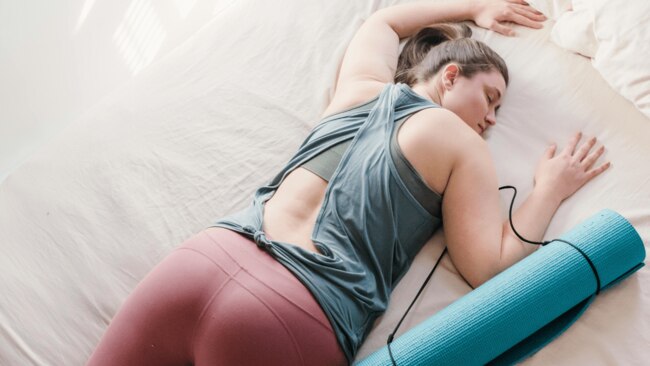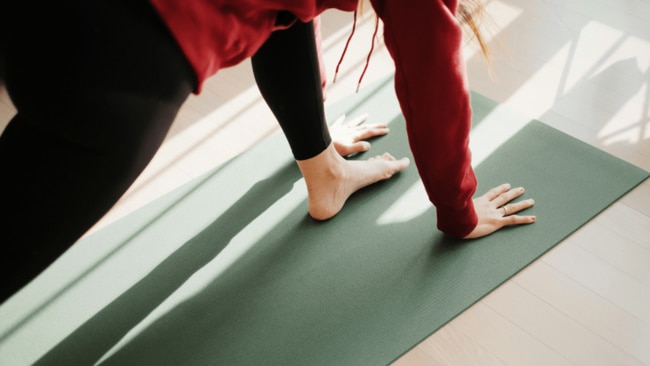Experts say doing this one thing before bed will help you sleep longer
Squat, drop, and sleep all night
Lifestyle
Don't miss out on the headlines from Lifestyle. Followed categories will be added to My News.
In this article:
The surprising correlation between sleep quality and nighttime exercise
How a new study tested the theory
The best bursts of movements for a better night's sleep
Sick of tossing and turning all night? It turns out that squats are better than diddly-squat in the evening.
New research finds that taking a break from the couch-potato life to do simple exercises before bed can help you sleep about a half hour longer.
The age-old thinking is that vigorous exercise before bedtime will raise your heart rate and body temperature, making it difficult to fall asleep. So the researchers from the University of Otago in New Zealand focused on short bursts of light activity.
“These results add to a growing body of evidence that indicates evening exercise does not disrupt sleep quality, despite current sleep recommendations to the contrary,” the study authors wrote in their findings, published Tuesday in BMJ Open Sport & Exercise Medicine.
Here’s the catch, though: The three-minute circuit of exercises – meant to be a break from sitting – should be completed every half hour over four hours in the evening.
The study authors recruited 28 non-smoking adults up to 40 years old. The participants clocked more than five hours of sedentary time at their day job and two hours in the evening.
They were directed to wear a fitness tracker for seven consecutive days, in which they also recorded when they went to bed, when they woke up and when they participated in activities that may not have been picked up by the tracker, such as using a stationary bike or doing yoga.
Each volunteer also completed two four-hour evening visits to a controlled laboratory setting.
In one session, participants remained seated the entire time, starting at around 5 p.m. In the other, they interrupted their rest with three minutes of simple resistance exercises every 30 minutes over the four hours.

Each three-minute “activity break” included three rounds of three exercises – chair squats, calf raises and standing knee raises with straight leg hip extensions for 20 seconds each.
“These simple bodyweight exercises were chosen because they don’t require equipment or a lot of space, and you can do them without interrupting the TV show you are watching,” said study author Meredith Peddie, a senior lecturer in the Department of Human Nutrition.
“From what we know from other studies, you could probably get a similar effect if you walked around your house, marched on the spot or even danced in your living room – the most important thing is that you get out of your chair regularly and move your body,” she added.
The idea is that moving around reduces the amount of sugar and fat in the bloodstream after a meal.

Peddie’s team determined that when participants did the exercises, they slept an average of 27 minutes more than when they spent the four hours sitting. The average sleep duration was 7 hours and 12 minutes versus 6 hours and 45 minutes.
Participants didn’t change their bedtimes, but their average wake times differed. It was 7:35 AM after the prolonged sitting and 8:06 AM after the activity breaks.
Between the two camps, there were no significant differences in uninterrupted sleep.
“This study appears to be the first to explore the effect of evening resistance exercise breaks on subsequent sleep quality and physical activity patterns in healthy adults,” the researchers wrote while acknowledging that limitations of the study include the small number of participants and the lab setting.
“As with all laboratory studies,” they wrote, “the highly controlled setting may not reflect behaviour” in the real world.
Experts recommend seven to nine hours of sleep a night to lower the risk of developing obesity, heart disease and depression, among other chronic conditions.
More Coverage
Originally published as Experts say doing this one thing before bed will help you sleep longer




